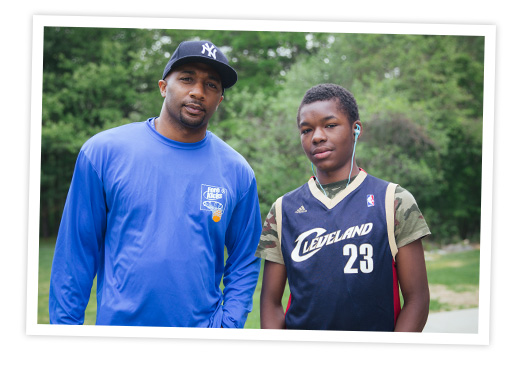
Our C.A.R.E. Model
Brandon is at a pivotal moment in its 50 year history and current and future youth and families will benefit from the changes happening right now. Following a thorough, self-initiated review and evaluation of practices, Brandon leadership (link to leadership page) went searching for a new foundation that is consistent with Brandon’s philosophy. Five months of searching led Brandon to “Children And Residential Experiences (CARE)” and “Therapeutic Crisis Intervention (TCI).”
About the C.A.R.E. Model
CARE is a research-based, principle-driven practice model developed by Cornell University, built on six principles of care:
- Developmentally-focused: Children at Brandon need extra support to overcome challenging life experiences, which have interrupted their healthy development.
- Family-involved: Successful treatment happens when Brandon works together with families to improve and strengthen relationships.
- Relationship-based: Children learn and grow by accessing meaningful relationships with adults and peers.
- Competence-centered: Enriching, goal-driven activities help children experience and replicate success.
- Trauma-informed: Brandon creates safe environments and builds trusting relationships because negative behaviors are symptoms of anxiety or emotional pain. When working with traumatized children, Brandon asks not, “what’s wrong with you?” , but rather, “what’s happened to you?”
- Ecologically-oriented: A caring community motivates learning and encourages a child to develop new abilities to reach his potential.
These principles infuse practice at all levels of the agency and guide planning, interactions, decision-making, and crisis prevention; they drive a positive organizational culture with exceptional experiences for youth and families at the core. Brandon is proud to be the first program in Massachusetts to adopt the CARE practice model. In addition to shaping care for youth, CARE will enhance Brandon’s existing efforts to measure treatment effectiveness and outcomes.

Key Features of C.A.R.E.
- CARE is a carefully guided and evaluated four year process involving extensive training and supervision for all staff
- Congruence in language and practice to improve outcomes for youth and families
- Emphasis on learning life skills through competence-centered activities
- Experience living & learning in groups
- Building and accessing healthy relationships
- Supporting behavior change
TCI is a crisis prevention and intervention strategy that supports CARE. In addition to staff training and certification, key elements are:
- Individual Crisis Management Plan (ICMP): Every child has an individual plan based on what strategies work, they help update it regularly
- Life Space Interview: a structured, higher level method to process incidents with children so they don’t happen again
- Emotional First Aid: A quicker route to returning children to the group after a stumble
- Active listening: Being empathetic, communicating understanding, validating feelings and being respectful.
Co-regulation: Helping a child cope with emotions by lowering stress and providing emotional support
More about CARE:
*Support for this program is provided in part by The MetroWest Health Foundation



